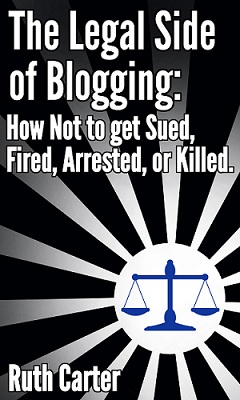One of the perks of being a blogger is sometimes you get free stuff. Companies will send you free things with the hopes that you’ll write about it. One of my writing gigs is product reviews for lawyers so I have to use various office gadgets and software and write about it.
If you are lucky enough to get free stuff in the mail or you review products as part of your job, there are some rules you need to know. By federal law, you have to do two things if you do product reviews:
Your review of the product must contain your true opinion about it that is not misleading.
You must disclose when you are compensated for giving your opinion.
This means that you have to be honest about what you think about a product and not feel compelled to say nice things just because you got it for free or paid for the review. And you have to tell the audience that you got a benefit for the review – perhaps so they can be aware of the potential bias. The disclosure doesn’t have to be a big deal – just a “XYZ sent me this product for free and here’s what I think about it.”
If you don’t follow this rule, you could be fined up to $11,000 by the Federal Trade Commission. They can go after the reviewer or the company who sent the product. I suspect they’ll go after who has money to pay the fine.
 A company that sends out free products to bloggers or reviewers should include a reminder to their reviewers that they need to comply with this rule. This rule also applies if you’re writing comments on other blogs or websites or writing original content for your own site.
A company that sends out free products to bloggers or reviewers should include a reminder to their reviewers that they need to comply with this rule. This rule also applies if you’re writing comments on other blogs or websites or writing original content for your own site.
This rule also applies to review sites like Yelp and Trip Advisor. If you’re a Yelper, your must only post accurate reviews and you can only review products and services you’ve used. A company can’t legally tell its employees to post exaggerating positive reviews about the company or fake negative reviews about their competition.
If you need a legal resource on this topic or anything related to the laws that apply to social media, I recommend my book, The Legal Side of Blogging: How Not to get Sued, Fired, Arrested, or Killed. It covers a lot of the major issues that apply to copyright and the internet. If you want to chat more about this topic, feel free to connect with me on Twitter, Facebook, YouTube, LinkedIn, or you can email me.
Please visit my homepage for more information about Carter Law Firm.
